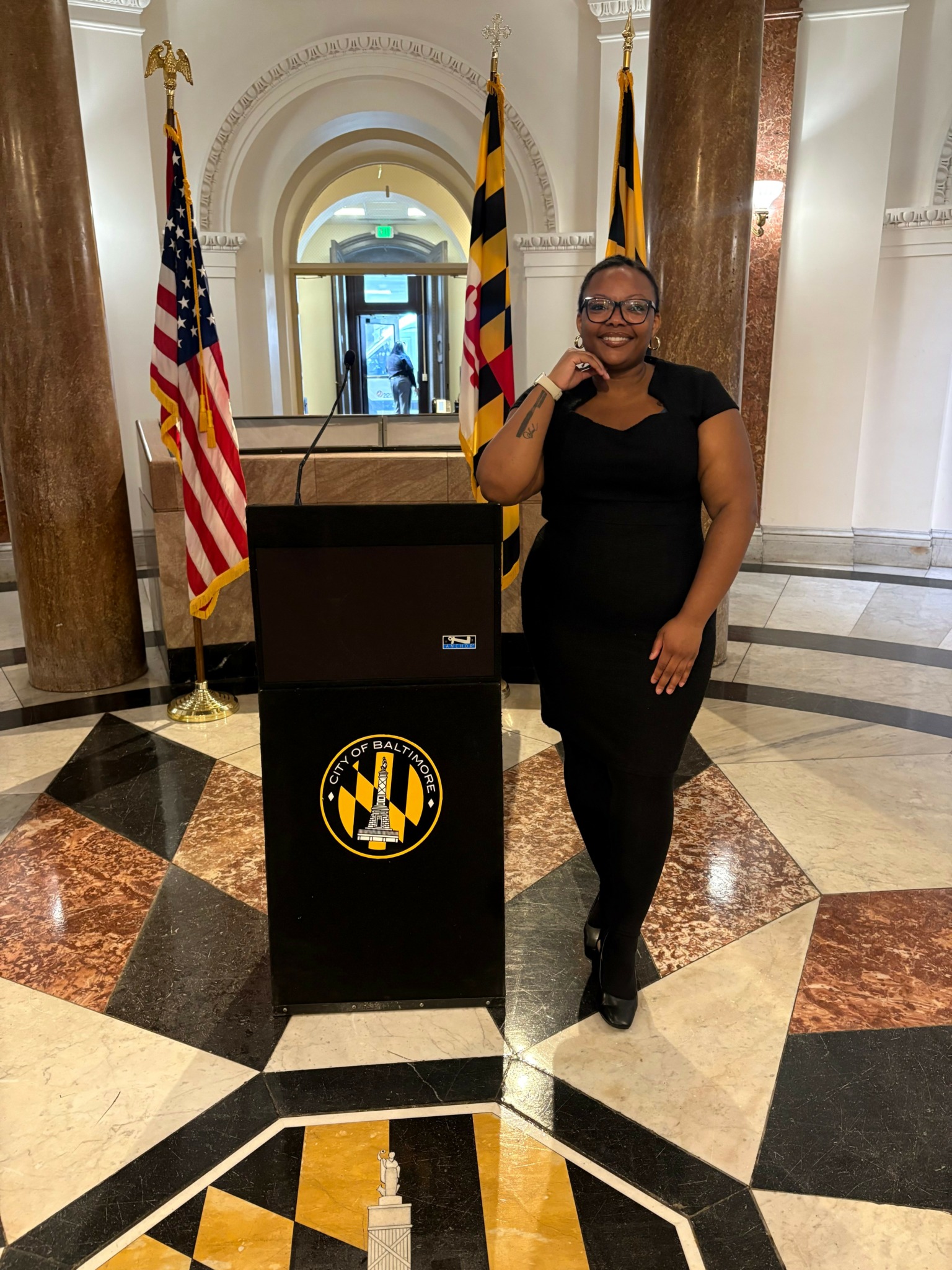Alright – so today we’ve got the honor of introducing you to Cheyenne Atkins. We think you’ll enjoy our conversation, we’ve shared it below.
Cheyenne , appreciate you joining us today. What were some of the most unexpected problems you’ve faced in your business and how did you resolve those issues?
As a freelance sign language interpreter, one of the most unexpected challenges I’ve faced is navigating the variety and unpredictability of each assignment. We often walk into new environments—medical, legal, educational, or corporate—with little to no preparation time. Many times, it’s our first time meeting the Deaf client, learning their communication style, understanding specialized terminology, and figuring out who’s who in the room—all within 15 to 20 minutes before the assignment begins.
Building trust quickly is crucial. The Deaf client needs to feel confident that I’ll represent them faithfully and accurately. At the same time, I often work with hearing individuals who have never interacted with an interpreter before. Part of my role is to set expectations and make sure everyone understands how the interpreting process works to ensure effective communication for all parties involved.
Each day I engage in my work, I am reminded that flexibility, professionalism, and clear communication are fundamental qualities for success in the interpreting field. These experiences continually affirm that interpreting extends beyond language and access—it is rooted in fostering connection, building trust, and maintaining a strong, respectful presence.

Cheyenne , before we move on to more of these sorts of questions, can you take some time to bring our readers up to speed on you and what you do?
My name is Cheyenne Atkins, I’m a freelance sign language interpreter based right here in Baltimore City. My journey with American Sign Language started way back in elementary school when a young Deaf girl joined my school. Our school offered after-school ASL lessons, and I was immediately drawn in. I fell in love with the language, the culture, and the sense of connection that communication can bring. Even though I didn’t receive formal training until college, that early experience planted a seed that eventually grew into a career.
I went on to attend Central Piedmont Community College in Charlotte, NC then Gallaudet University in Washington D.C, where I received formal interpreting training in a place that truly immersed me in the Deaf community and deepened my respect for Deaf culture and language. Today, most of my work is in government settings—local, state, and federal—as well as in post-secondary education. But outside the typical 9–5, I also enjoy interpreting at conferences, festivals, concerts, and a wide range of community events. I love the variety in my work—it keeps me learning and growing all the time.
What sets me apart as an interpreter is that I bring my whole self to my work. That means I don’t just show up to interpret words; I show up with care, presence, and a genuine interest in the people I serve. I believe authenticity matters, and people can feel it when you’re truly invested in the process. Although I’m an interpreter by profession, at heart I’m someone who loves learning about people, their stories, and the experiences that shape them.
If there’s one thing I want people to know about me and my work, it’s that I see interpreting as more than just a service—it’s a relationship built on trust, respect, and cultural awareness. Whether I’m in a boardroom, a classroom, or at a music festival, I strive to create space where Deaf and Hearing individuals can connect fully, with dignity and confidence.

Where do you think you get most of your clients from?
For me, the best source of new clients has always been word of mouth. In this profession, your reputation truly precedes you—sometimes even before you step into the room. I often receive calls or texts saying, “I’ve heard so much about you, and I’d love to use your services.” Honestly, that never gets old. It’s incredibly rewarding to know that the care, professionalism, and authenticity I bring to my work are not only recognized but valued by others.
There’s something deeply meaningful about knowing that people trust you enough to recommend you to others, especially for opportunities I might never have known about otherwise. It serves as a reminder that showing up with your best effort doesn’t just impact the client in front of you—it also opens doors to future opportunities you may not have anticipated.

We often hear about learning lessons – but just as important is unlearning lessons. Have you ever had to unlearn a lesson?
One important lesson I had to learn is that having a bad day doesn’t make me a bad interpreter—and I’m not the right fit for every situation. I once accepted an assignment that was described as a simple onboarding, but when I arrived, it turned out to be highly technical, with little context and no prior experience in that field. I knew it wasn’t my best work, and I felt disappointed afterward. However, I was transparent with the client during the assignment, and they appreciated my honesty—we developed a plan to move forward. Later, a mentor reminded me that everyone has off days, and that moment taught me to extend grace to myself and continue growing from every experience.
Contact Info:
- Instagram: flower_child30





